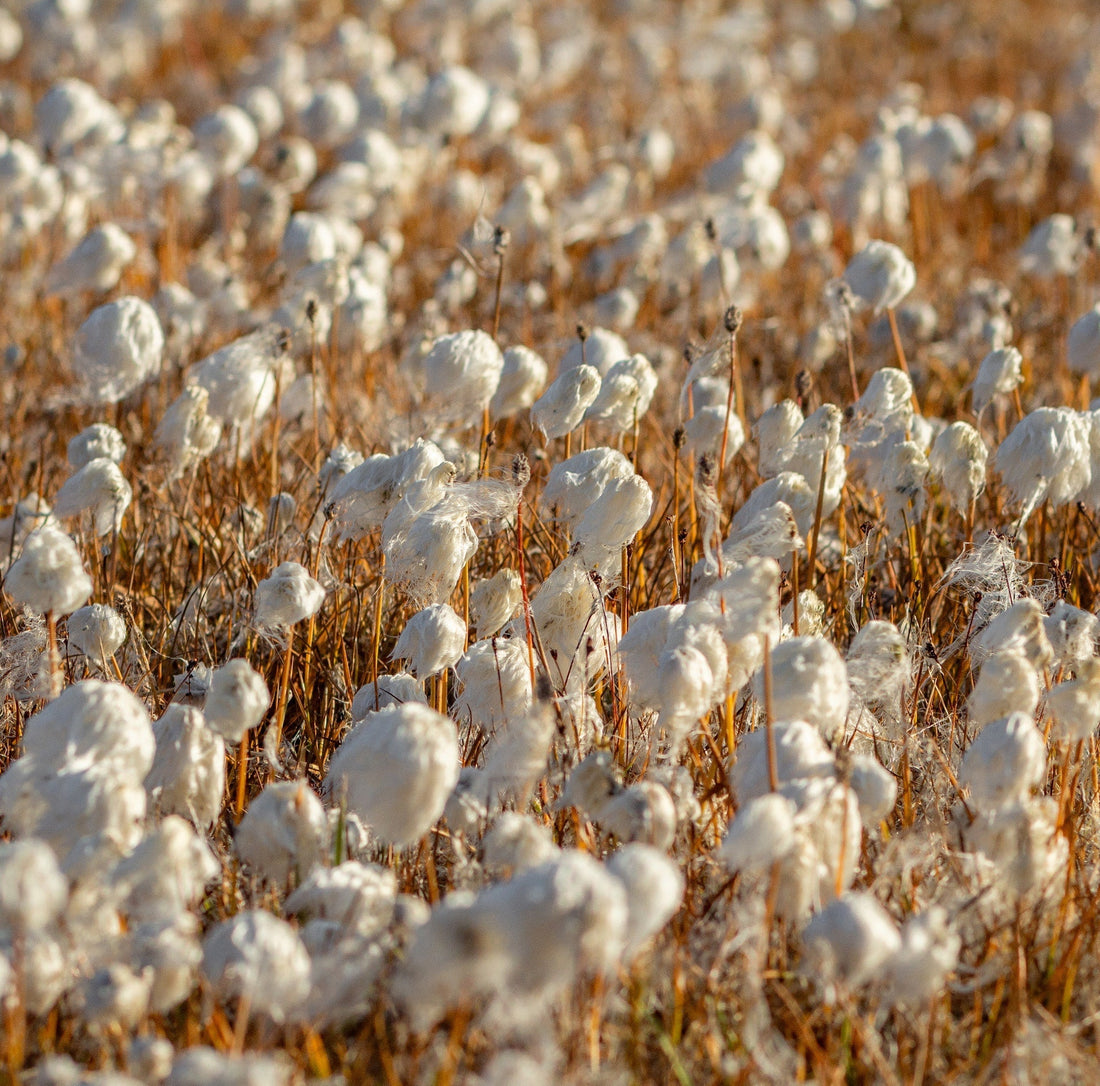
Lesser-known aspects of organic cotton
Share
What do we call organic cotton? We hear a lot about organic cotton and its certifications. But what is it really?
What is organic cotton and what's so great about it?
Organic cotton is grown using agricultural systems that work in favor of nature and not against it .
These systems have the capacity to maintain and promote the health of soils, ecosystems, and people by relying on ecological processes, respecting biodiversity, and using cycles adapted to local conditions.
Natural? Sustainable? Organic?
Unlike terms like "natural" or "sustainable," Basic principles of organic (or ecological) agriculture are legally controlled by the regulatory bodies of each country.

And how is it controlled?
Many organic farmers go further but, At a minimum, they must comply with a series of national standards on soil health and the prohibition of the use of artificial fertilizers, dangerous synthetic pesticides and genetically modified organisms (GMOs).
In turn, Independent certifying bodies verify that farmers comply with national regulations , as does the International Federation of Organic Agriculture Movements (IFOAM – Organics International).
When cotton comes out of the plantation, what happens?
Once the cotton leaves the plantation, chain of custody control from the gin to the finished product It is passed on to private organizations , who certify these processes.
The most common are the Organic Content Standard (OCS) of Textile Exchange and the Global Organic Textile Standard (GOTS).
You can check which certifications the fabrics we use to make our garments have. here .
Should we trust certifications?
Independent certifications play an important role in verifying the quality of organic cotton.
The problem is that There are more and more certifications/seals/eco-labels. As consumers, this creates a certain confusion and distrust in us. We no longer know what each label measures, whether it's a seal or a certification, whether it complies with European or other regulations, etc.
Does it happen to you too?

But then, why isn't more organic cotton produced proportionally?
Organic farming systems provide long-term benefits. But the conversion period, often three years, is a huge burden for farmers to bear alone , and regulations can be restrictive if there are no viable alternatives to conventional means.
For example, The continued use of pesticides and chemical fertilizers over time reduces soil quality , and their elimination can leave crops vulnerable. In these cases, farmers may choose to continue using the same toxic products to continue farming the land, or invest time and money to restore the soil and adapt to a new way of farming.
Other times, farmers simply do not have access to non-genetically modified seeds , which limits the production of this type of cotton from the source.
But there are many more reasons…
We invite you to read the latest report published by Textile Exchange on the Global organic cotton market , with key data and emerging trends in organic cotton production and conversion.
What needs to happen for this to change?
Must create a more resilient market that supports organic practices to help ensure a sustainable future for all stakeholders in this global supply chain, from farmers to suppliers and brands, to consumers.
Above all, what should be done is to distribute the financial responsibility for this change and sign long-term commitments so that farmers are not the ones who bear the entire burden.

I hope you found this little bit of information interesting.
Good day!

